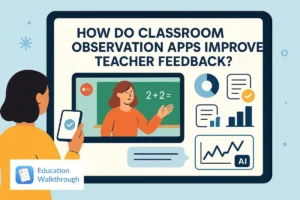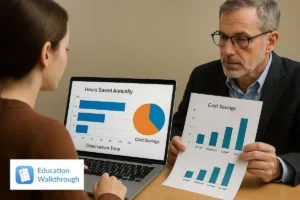Principals are also educators, but they play a fundamentally different role than teachers. Principals occupy the top of the chain of the command and whatever gets done in the school ultimately comes back to them.
As such, principal-teacher relationships need to be based on trust and mutual respect. The worst thing a principal can do is alienate his teachers and make them feel unappreciated for all the hard work that they put in.
Here are 11 simple ways that principals can inspire and support their teachers.
1. Have Their Back
Principals should be on the side of their teachers. Teachers are human and go through ups and downs. If one of your teachers is having a bad day or there are issues going on in their personal lives, you should try to support them. This support could be something simple like asking them how they are doing or giving them a few days off to sort through their issues.
Obviously, there are limits to how much you should support your teachers. If they are engaged in something illegal or unethical it should be addressed immediately.
2. Regular Evaluations
Pretty much every employee likes getting feedback on their work, teachers included. Evaluations give you time to assess teacher performance and also give teachers guidelines on how to grow and improve their performance. Meaningful evaluations take a lot of work and involve much more than just asking them a series of questions or asking them to fill out a self-evaluation form.
Effective evaluations involve both compliments and constructive criticism. Teachers should walk away from evaluations with a clear picture of what it is they do well and where they could stand to improve. Rarely can a satisfactory evaluation be performed in one go.
3. Show Appreciation
Teachers have a hard job. They work a lot and often have to sacrifice their free time for creating lesson plans, grading homework, and the like. Small tokens of appreciation can go a very long way to boosting their morale. Here are a couple of ideas on how to show teacher appreciations:
- Bring in a local service to help them relax
- Teachers appreciate free food
- Surprise them with random gifts and acts of kindness
Taking time to express your appreciation for all their hard work not only makes them feel more comfortable at work but it also can increase productivity.
4. More Flexible Schedules
Most of the time, the principal is the one who creates the master schedule for the building. Cluttered schedules with an unfair allocation of duties are a surefire way to make teachers angry and unresponsive. Consider reworking schedules to lighten the load on your instructors.
5. Get to Know Them
The teacher-principal relationship is professional, but that does not mean you can’t get to know your teachers personally. Getting to know your teachers is a good way to build a trusting relationship with them. You need to be careful though to make sure that the relationship does not veer too far into the personal zone.
6. Listen to Their Complaints…
Teachers are human beings and like to have their voices heard. Odds are, a teacher under you probably has a few ideas about things that could be run differently. Make sure you give a place for your teacher’s voices to be heard. If you don’t listen to your teacher’s issues, they will likely feel resentful of your leadership capabilities.
7. …And Actually Respond
Listening to complaints is not enough, You need to make sure to follow through and seriously address those complaints. Teachers are able to tell if you are just paying lip service to their concerns. You should take active steps to alleviate those concerns (within reason) and follow up with teachers afterward.
8. Let Them Work Together
Despite what many people think, teaching is a collaborative effort. Teachers should have ample opportunity to work together on projects and trouble-shoot ideas. Allowing teachers to work together increases the trust between them and can also be a way for new teachers to get their bearings and fit into the group. Principals should schedule time for teachers to collaborate and share their success stories in and around the classroom.
9. Professional Development Opportunities
Most districts require teachers to maintain certain levels of certification. However, it is a good idea for teachers to go above and beyond these requirements. As a principal, you can help teachers by providing substantive opportunities for professional development. You should make it a point to disseminate information about professional development to your teachers and approve any requests to attend these kinds of programs.
10. Schedule Social Events Outside of School
Having some personal involvement with your teachers is a good way to build a trustful relationship. After all, someone is more likely to trust you if you take an interest in their personal lives. Organizing social events for teachers outside of school is a great way to break down these barriers and get to know them one-on-one. You can learn a lot about your teachers spending time with them outside of the classroom walls.
11. Respect Them
Principals need to have respect for their teachers. This includes respect for their time, desires, and personal lives. Making sure that things are properly organized is a way to respect their time and you can also lighten their workload when it is a busy week, such as finals or report car time. You do not want your teachers to feel like they are just a work resource to you. Respect goes both ways too, so the more that you respect your teachers, the more they will respect you.
Conclusions
Principals occupy a unique role in the education landscape. As a principal, you are the proverbial captain of the ship, and the wellbeing of the crew is dependent on you. Principals can maximize their effectiveness by acting in ways that inspire their teachers. These 11 options are just a few of the ways you can show your teaching force they are valued and appreciated.



